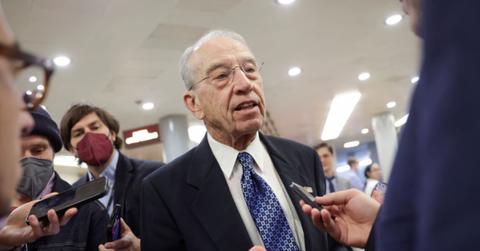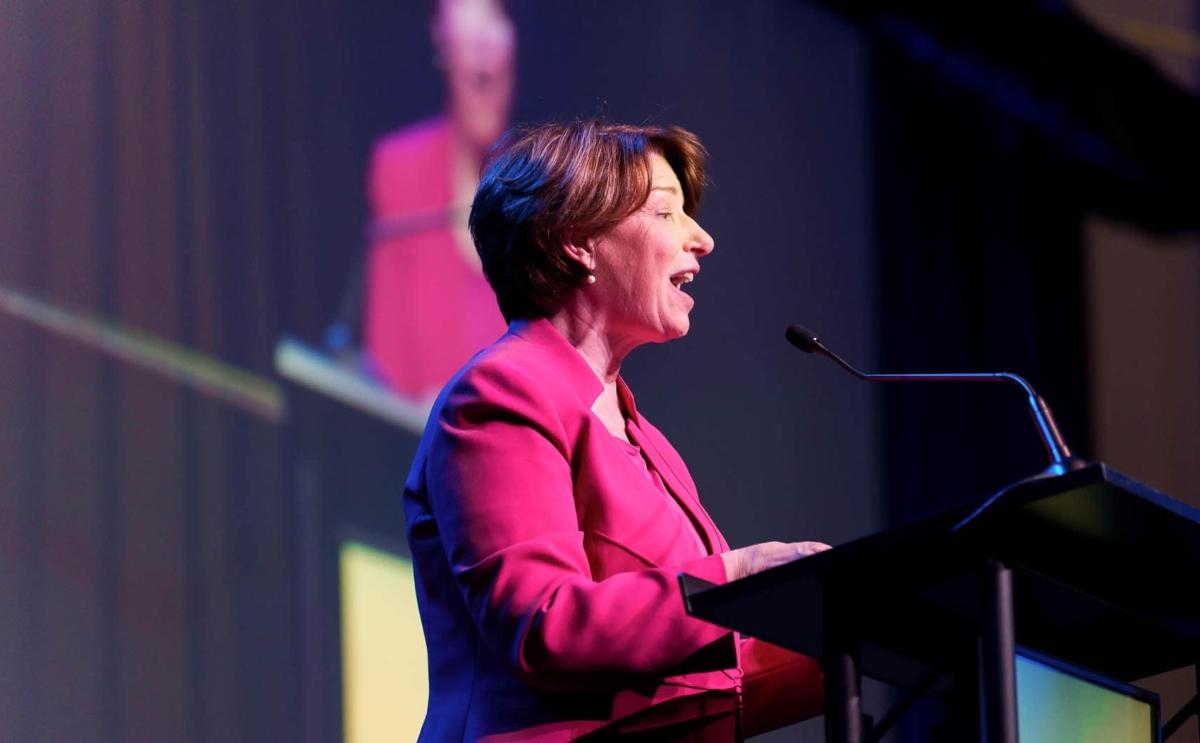Bipartisan Tech Competition Legislation: S2992 Bill, Explained
Senate bill S2992, or the American Innovation and Choice Online Act, aims to improve online competitiveness and weaken monopolies of large tech platforms.
June 8 2022, Published 11:31 a.m. ET

Senator Chuck Grassley (R-IA) supported the Senate bill S2992.
Major corporations and the consumers who use their services for lower prices are wondering what to expect if the bipartisan technology competition bill, S2992, passes the Senate. The bill, sponsored by Republican Senator Chuck Grassley and Democratic Senator Amy Klobuchar, aims to improve tech competition. Here’s a summary of the S2992 bill.
Senate bill 2992 is also known as the American Innovation and Choice Online Act. The bill’s sponsors and supporters claim that it would help restore competition for online business, lower consumer costs, and create a more level playing field for small business owners. Critics claim it would weaken cybersecurity, raise costs, and limit innovation.

Sen. Amy Klobuchar (D-MN) is pushing forward a Senate antitrust bill that would impact tech companies.
The S2992 bill aims to stop tech platforms from unfairly promoting their products.
Minnesota Senator Klobuchar sponsored the American Innovation and Choice Online Act along with Iowa Senator Grassley. The bill was first introduced in October 2021 and it is currently on the Senate legislative calendar.
One of the key proposals in the bill is that large online platforms like Google and Amazon would be prohibited from unfairly promoting their own products and services on those platforms. They wouldn't be able to unfairly limit the availability of competitor products.
The S2992 bill also states that “a platform may not materially restrict or impede the capacity of a competing business user to access or interoperate with the same platform, operating system, or hardware or software features.”
There are also restrictions on the use of nonpublic data, the installation or de-installation of software, and search or ranking functionality.
The FTC and Department of Justice would enforce the bill's guidelines.
The Senate website states that both the FTC and the Department of Justice would be responsible for determining which companies are platforms covered by the bill. Entities that repeatedly break the bill’s rules would face civil penalties, injunctions, and potentially even forfeit profits.
Senator Amy Klobuchar recently spoke on ‘Morning Joe’ about S2992.
On the program Morning Joe, Senator Klobuchar discussed the goals of the bill with anchor Joe Scarborough. She stated, “We’re looking at this in a uniquely American way to be able to continue the innovation but make very clear you've got to have competition in America.”

'Morning Joe' anchors Mika Brzezinski and Joe Scarborough. Sen. Klobuchar appeared on the show to promote S2992.
Scarborough spoke in favor of the bill, calling it “pro-entrepreneur,” “pro-small business,” and “pro-free market.”
Organizations that have come out in support of the S2992 bill include the International Brotherhood of Teamsters, Service Employees International Union, and the Strategic Organizing Center. The editorial boards of The Washington Post and The Boston Globe have done the same, Klobuchar's website states.
Companies that have expressed support for the bill are Yelp, Sonos, Patreon, Y Combinator, and DuckDuckGo.
Not everyone supports the S2992 bill’s passage.
The Computer and Communications Industry Association (CCIA) runs a campaign called "Don’t Break What Works." In May, the group released a statement indicating the revised bill didn't address any of the concerns raised in January.
According to the group, national security experts have concerns about the bill’s risks to cybersecurity and data protection. They also claim the bill would make inflation worse and harm U.S. competitiveness in the global market.
Unsurprisingly, Amazon is among the opponents of the bill. An Amazon vice president urged users of the Amazon Seller Central Forum to oppose the legislation, CNBC reported.
